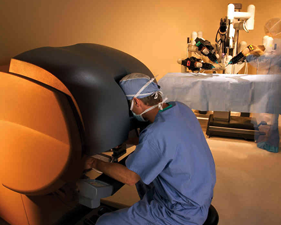 What is a “stage” of prostate cancer?
What is a “stage” of prostate cancer?
When it concerns cancer, the word “stage” refers to the extent of the disease. Prostate cancer staging involves both the size of the tumor and whether or not it has spread to other parts of the body such as the lymph nodes. Staging is very important, because it helps healthcare professionals determine the most appropriate treatment.
Prostate cancer is both staged and graded.
As part of the diagnosis process, prostate cancer is graded and staged. The grade describes how aggressive the cancer is and how fast it is likely to grow.
The prostate cancer Gleason score.
Most pathologists use the Gleason system to grade prostate cancer. They look for the most common type of cancer cell in the sample and assign it a number between 1 and 5—the higher the number, the more abnormal the cells are. Another number is assigned to the second-most common type of cancer cell in the sample. The Gleason score is the sum of these two numbers, which will be between 2 and 10.
Stage I prostate cancer.
The prostate cancer may not have been detected through a digital rectal exam (DRE) or an imaging machine (MRI, CT scan, etc). Most likely, it was found during a surgical procedure. It has a very low Gleason score and has not spread to the lymph nodes
Treatment.
Stage I prostate cancers are small and have low Gleason scores (2–4). Generally, these tumors grow slowly and may never cause health problems. Watchful waiting is a common way of managing these cancers. For men who want to start treatment, radiation therapy, hormone deprivation, and surgery are available as options
Stage II prostate cancer.
The prostate cancer has not spread to the lymph nodes or other parts of the body. It was found during a DRE, needle biopsy, or transrectal ultrasound
Treatment.
Surgery and radiation therapy are the most likely treatments. But for older men whose cancer is not causing any symptoms, watchful waiting may be enough. Radiation therapy may be combined with months of hormone therapy if there is a high chance of recurrence (the cancer returning) based on a high PSA level or Gleason score
Stage III prostate cancer.
The prostate cancer has begun to spread beyond the prostate. It may have spread to the seminal vesicles, but it has not spread to the lymph nodes, bladder, rectum or distant organs
Treatment.
Likely treatments include external beam radiation and hormone therapy in combination, hormone therapy alone, and surgery to remove the prostate and nearby lymph nodes, which is often followed with radiation. These cancers are more likely to come back after treatment (to recur)
Stage IV prostate cancer.
The prostate cancer has spread to tissues next to the prostate (other than the seminal vesicles), to lymph nodes, or to other, more distant sites in the body such as the bones. These cancers are not considered curable
Treatment.
Hormone therapy, radiation, and surgery to relieve symptoms are all options at this point. If these treatments do not relieve symptoms, and the cancer continues to spread throughout the body, chemotherapy is an option. People with stage IV cancer may want to consider enrolling in a clinical trial to test a new therapy
Treatment of Prostate Cancer at World Class Hospitals in India

External Beam Radiotherapy : This is a treatment where high-energy X-rays are aimed at a cancer to cure or control it. The X-rays come from a machine called a linear accelerator. This is known as external beam radiotherapy.
Radiotherapy : Radiotherapy uses high energy waves to treat cancer. If your cancer has not spread beyond the prostate gland you can have radiotherapy to try to cure it. This is called radical radiotherapy. This type of treatment involves giving a high dose of radiation to the prostate gland.
Hormone therapy : Cancer of the prostate depends on the male hormone testosterone for its growth. By reducing the amount of testosterone in your body, the growth of cancer cells can be slowed down or stopped. It can shrink the tumour and urinary symptoms can often disappear fully.
To know more about Prostate Cancer Treatment in India please visit this link : https://safemedtrip.com/medical-services/cancer-treatment-in-india/prostate-cancer-treatment-in-india.html
 Click to WhatsApp
Click to WhatsApp +91-9899993637
+91-9899993637





